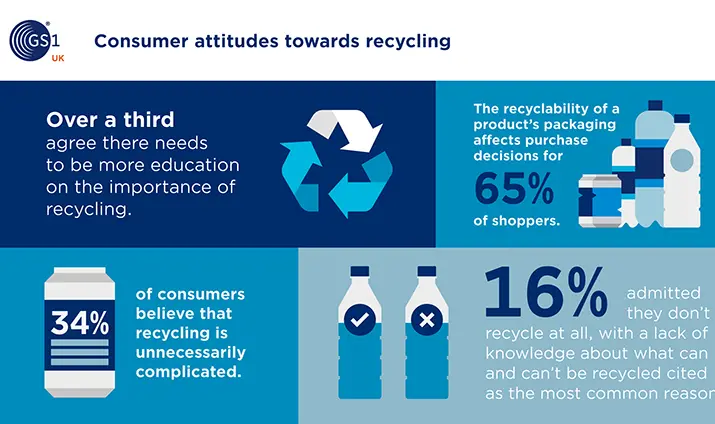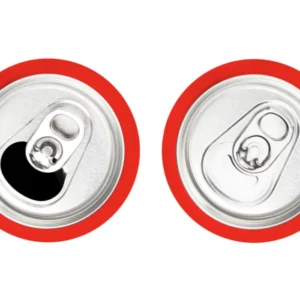Unpacking the challenge of deposit return schemes

Image: GS1 UK
GS1 UK research reveals a worrying lack of knowledge about DRS in both consumers and business owners, and is calling for more to be done before schemes are implemented across the country
Research recently shared by GS1 UK has found that a third of consumers believe recycling is unnecessarily complicated.
Defra figures show that the amount of household waste recycled in England fell by 1.5 per cent in 2020 to 44 per cent, six per cent below the EU minimum target of 50 per cent.
However, it appears consumers do want to live more sustainably. According to GS1 UK, 65 per cent claim that the recyclability of a product’s packaging affects their decision to purchase. This reflects the attitudes seen by Trivium Packaging across Europe, North and South America in its recent 2022 Global Buying Green Report, where 68 per cent of people surveyed said they had chosen a product based on its sustainability credentials.
Continuing with GS1 UK’s findings, 37 per cent agree that more needs to be done to educate people on the importance of recycling, and 33 per cent believe there should be more support to encourage people to do so.
Calling for greater awareness
Despite the huge impact deposit return schemes (DRS) will have on consumer’s behaviours, and their wallets, GS1 UK research also found that only 42 per cent had heard of DRS and understood how they worked, while a quarter had no idea what they were at all.
After being explained how a potential scheme could work, 60 per cent of consumers surveyed reportedly said being able to reclaim a deposit would make them more likely to buy products included in the schemes, and 57 per cent would do a lot more recycling if it meant they’d not be left out of pocket. This suggests a little incentive could go a long way.
Cost and complexity
GS1 UK research among business owners also revealed a worrying lack of awareness as 38 per cent were not aware of DRS at all.
Despite 69 per cent of businesses believing the introduction of DRS will be a positive step for their industry, four in 10 reportedly think that the schemes will have a negative impact on their own businesses.
Consumers could also be in for a double price hike on items included in the schemes. A third (33 per cent) of businesses surveyed said they will raise the RRP of products to account for added operational costs and complexities.
Many in the metal packaging industry are concerned about a flat rate DRS. Not-for-profit organisation Alupro, for instance, is pushing for a variable rate DRS due to the worry that a flat rate would lead to switching from multipacks of aluminium cans to larger format plastic bottles due to the cumulative cost of the deposit fee on multipacks. This would be a major step back for sustainability efforts all round.
More to be done
The final rules and regulations are still to be decided, with the four UK nations planning on taking different approaches with different timelines. GS1 UK is calling for a future-proofed approach that delivers simplicity, convenience and ease of use for both consumers and industry.
The introduction of deposit return schemes could be a real positive step, but the operational impact for businesses, compounded by the lack of awareness, means there are significant challenges that will need to be addressed in the next two years.
“We have a limited window of opportunity to help the industry solve this conundrum. In the meantime, much more needs to be done to inform consumers and change their behaviour. Only through this level of focus and collaboration will any scheme stand a chance of being successful,” said Anne Godfrey, CEO of GS1 UK.






